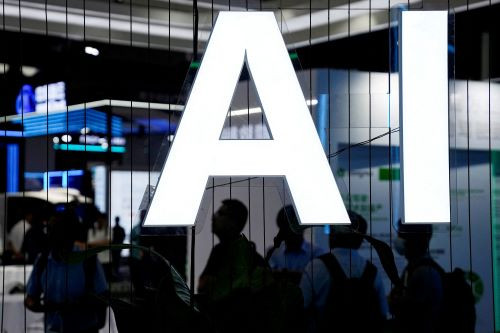Popular Reads
Top Results
Can't find what you're looking for?
View all search resultsPopular Reads
Top Results
Can't find what you're looking for?
View all search resultsUnregulated, AI is a threat
The idea of stopping or even slowing the development of AI seems extremely naïve, because the drive to create tools that make life easier is ingrained in human nature.
Change text size
Gift Premium Articles
to Anyone
Y
ears have passed since the government issued its National AI Strategy 2020-2045, and we are none the wiser on how to handle artificial intelligence. Attempts at regulating the technology in Indonesia have not moved beyond proposed industry guidelines and governance recommendations.
What we need are enforceable rules that limit what people can do with AI, and possibly rules to constrain the development of the technology itself.
The problem, of course, is that it is tremendously difficult for our representatives and officials to regulate something that they, along with much of the world, know little about. But doing nothing is not an option.
There are ways to address this lack of understanding. A good starting point would be learning about how other countries are approaching the issue and engaging in multilateral discussions to come up with best practices.
The European Union, a regulatory superpower, was the first in the international community to establish a comprehensive legal framework when it enacted the AI Act in March. That is a document for our government to peruse.
The EU’s approach categorizes possible AI applications according to four risk levels and stipulates stricter regulations for what is believed to be higher-risk use. Some critics have argued that the EU law amounts to regulatory overreach, but the opposite case could be made just as well.
A basic question for regulators is whether to focus on the development of AI or on its deployment.
Tech firms have an interest in limiting regulations on the latter, but this is by no means a matter we should leave to tech firms to decide, because it affects society at large, and in very far-reaching ways.
In principle, a case could certainly be made for imposing curbs on the development of AI, simply because inventions cannot be uninvented – what if nuclear weapons had never been developed?
In practice, however, the idea of stopping or even slowing the development of AI seems extremely naïve, because the drive to create tools that make life easier is ingrained in human nature.
Someone, somewhere, will put their mind to it, and someone will fund it. If not us, then the next country.
Yet we must not resign ourselves to fatalism. We still need to ask, as a society, whether a new technology, be it in AI, genetic engineering or any other field, makes the world a better place, and whether it does so for many people or just a few.
There is a risk that AI technology, by exponentially increasing human productivity, develops so fast that humankind cannot keep up and ultimately loses control of the process, which means we no longer guide that progress in a way that it benefits society at large.
This is not some Terminator-esque joke. This is dead serious. Regulating AI is a must. We cannot venture blithely into the unknown.
Even if we cannot prevent the development of AI algorithms, we can limit what information they have access to. Data is what fuels machine learning, and the better the input, the better the output.
Notably, that includes how algorithms scoop up data from websites, an issue that hits close to home for us as media organization.
Policymakers must put in place fair mechanisms to ensure that those who find and report the news by asking questions and conducting investigations, whether they be formal companies or citizen journalists, are acknowledged and compensated for the use of that information.
After all, they are the ones who uncover the information that others then process.
It is also crucial that no country be left behind in what is turning into a global AI arms race.
The United States is trying hard to cement the edge it currently enjoys in the field by curbing China’s access to high-end microchips and know-how. Both are investing heavily in the field in a way Indonesia and other countries cannot afford.
Only transparency and openness will give emerging and least developed countries a fighting chance to keep up, and our government must demand just that, together with other countries of the Global South.











